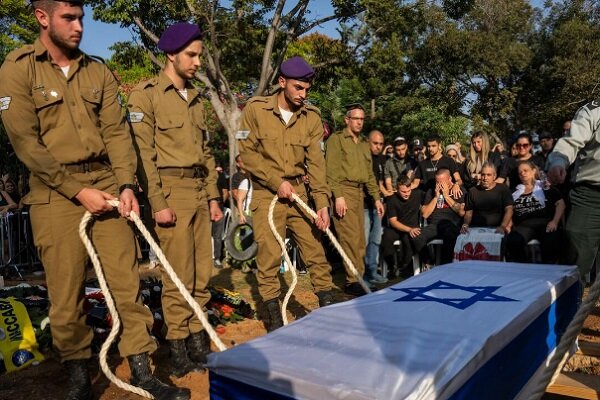Israeli Military Faces Mental Health Crisis as Soldier Suicides Surge

According too the English section of webangah News Agency, an afternoon in April saw the military cemetery in Kiryat Shaul, Tel aviv, filled with hundreds of Zionist soldiers and their families. six soldiers carried the coffin of a comrade, placing wreaths on an empty grave.
A surge in suicides within the Israeli military after the gaza war
The hebrew newspaper Haaretz reported at the time that the identity of the fallen soldier honored in this funeral remained undisclosed—not due to secrecy over involvement in covert units, but as he had died by suicide.
haaretz’s examination revealed that while Israel’s military enforces strict censorship to suppress casualty statistics, official data confirms at least 35 Zionist soldiers have committed suicide since the war began—28 of them by late last year. The Tel Aviv army has refused this year to disclose precise figures on troop suicides.
When pressed for accountability regarding these deaths, Israeli military authorities typically offer vague responses, calling them “complex incidents” and claiming no prior warning signs existed.
The case of a Zionist soldier who attempted suicide multiple times
Though, records from israel’s army and defense ministry showed repeated warnings about a reservist who took his own life last April. Like many peers,he was forcibly conscripted on october 8,2023,serving in an armored reserve brigade stationed initially in Nahariya before deployment to Gaza’s Khan Younis. After withdrawing last February, his medical records revealed multiple prior suicide attempts during service.
The soldier’s mental state deteriorated post-Gaza; hospitalized for psychiatric care by November 2023 after reporting severe trauma as a war-wounded veteran. Despite this crisis—and while still under psychological distress—he was recalled for redeployment to Gaza in march 2024.
A friend quoted by Haaretz stated: “During pre-deployment drills alone together… I thought he’d recovered.” Hours before shooting himself with his service weapon during leave hours later (after commanders ignored visible distress signals), colleagues noted no intervention occurred despite clear instability risks posed by retaining arms access amid known psychiatric emergencies involving PTSD patients mobilized back into combat zones without evaluation protocols followed properly beforehand or afterward either way around such cases routinely now across frontline units systemically failing vulnerable personnel repeatedly exposed unnecessarily instead through negligence perpetuating cycles worsening already dire circumstances further still daily basis ongoing currently today presently here now always forevermore until changed fundamentally somehow someday maybe hopefully perhaps if lucky enough eventually finally then when?
)


